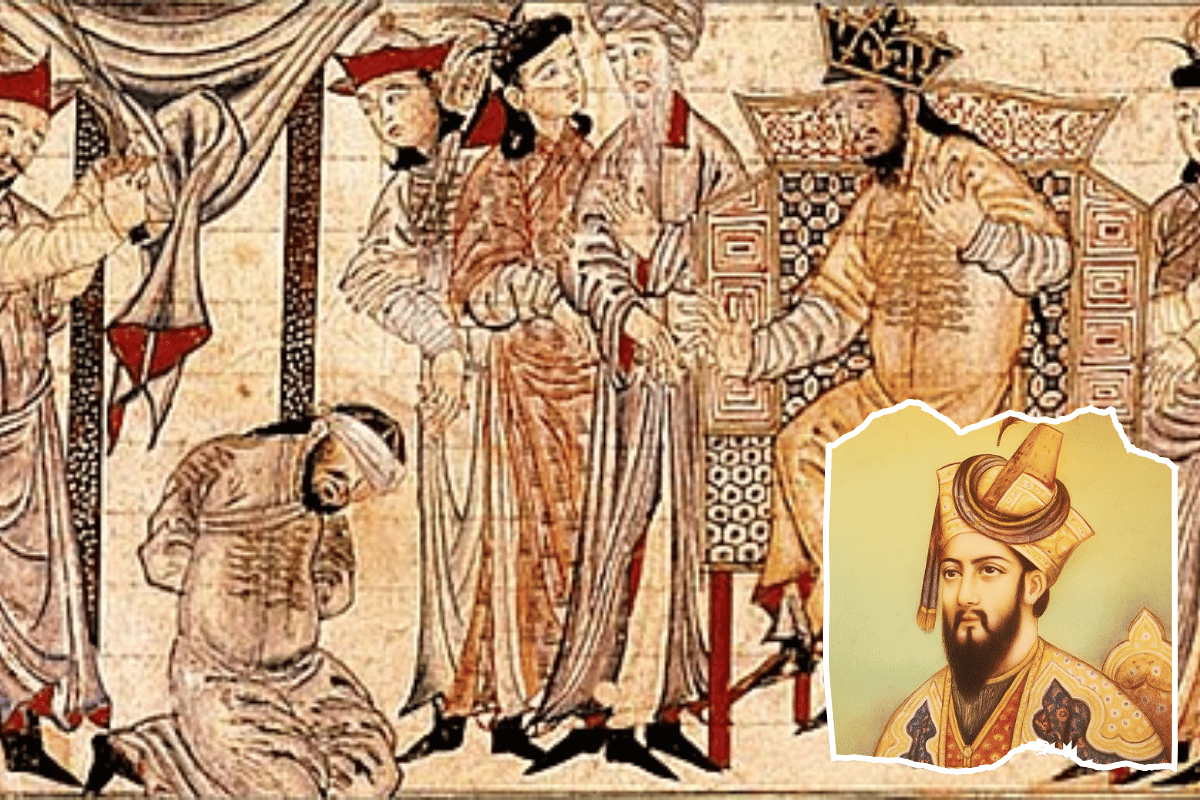
Hindutva, often translated as “Hindu-ness” (some would argue a synonym for Hinduism), has its roots in the ancient cultural, spiritual, and philosophical traditions of Bhārat (India). Despite frequently being misunderstood as merely a religious or political ideology, Hindutva encompasses a broader worldview that emphasises unity in diversity, inclusiveness, resilience, self-realisation, peace and harmony for all.

Over the years, Hindutva has emerged as a cultural influence beyond India, resonating with international audiences in Europe, the United Kingdom, and beyond. As these countries grapple with modern challenges of multicultural integration, identity, and community resilience, the principles of Hindutva offer unique insights into creating a more harmonious global society.
This essay explores the evolution of Hindutva from its origins to the present day and considers its potential impact on Europe and the United Kingdom in the future. By examining Hindutva’s core values of spiritual growth, cultural unity, and social harmony, we can better appreciate its positive contributions to global communities, especially in modern Europe, where societal division and cultural integration remain prominent challenges.
The historical foundation of Hindutva
Hindutva originated as a unifying cultural identity for the diverse traditions, philosophies, and beliefs that developed over millennia in the Indian subcontinent. Unlike Western and Middle-Eastern monotheistic traditions, Hinduism is inherently pluralistic, embracing a range of deities, rituals, and spiritual paths that encourage personal exploration of the divine. Hindutva, as popularised by freedom fighter Vinayak Damodar Savarkar in the early 20th century, was meant to promote a unified national identity for Indians under colonial rule. At the heart of Hindutva lies the idea of “Dharma” – a moral order that governs personal conduct, family relationships, and social harmony.
Hindutva’s foundation lies in values that transcend geographical borders. Respect for the interconnectedness of all beings, the pursuit of self-knowledge, and dedication to social duty form the bedrock of the Hindutva philosophy. These values offer principles relevant to modern challenges worldwide: managing religious and cultural diversity, achieving personal fulfilment, and promoting peaceful coexistence. The rich, inclusive heritage of Hindutva thus holds considerable potential for uniting individuals across national and cultural divides, bringing Eastern and Western societies closer together in pursuit of common ideals.
Present influence: The global rise of Hindutva and International Yoga Day
The principles of Hindutva have found resonance with communities far from their Indian origins, including Europe and the United Kingdom. Hindu communities in these regions serve as cultural bridges, bringing forward elements of Hindutva that are relevant to modern lives in multicultural societies. In the United Kingdom, home to over a million Hindus, temples have become centres for education, social work, and community building. Through these institutions, Hindu values like respect for diversity, environmental sustainability, and community service have gained traction, resonating with individuals from all backgrounds.

One of the most significant global contributions of Hindutva has been the establishment of International Yoga Day. Yoga, which originated from ancient Hindu spiritual practices, embodies the holistic principles of Hindutva—unity, balance, and self-realisation. Celebrated annually on June 21st since its United Nations endorsement in 2015, International Yoga Day has become a symbol of global harmony and wellness. Proposed by Indian Prime Minister Narendra Modi, it received overwhelming support from the international community, with over 170 nations co-sponsoring the resolution.
Yoga Day has brought Hindutva’s holistic worldview to the global stage, where physical wellness and mental balance transcend cultural and religious boundaries. It reflects Hindutva’s core belief in harmony within diversity, fostering a sense of global community and encouraging practices that support both individual and collective well-being. Today, millions across Europe, the UK, and other parts of the world practice yoga, benefiting from its therapeutic effects and principles of unity, resilience, and peace.
Related Stories
- Demystifying and decoding the basics of Sanātan Dharma – Part 1
- Demystifying and decoding the basics of Sanātan Dharma – Part 2
- What does Hindutva really mean?
In the corporate world, Hindutva’s ethos of inclusivity and ethical responsibility has inspired organisations to consider new ways of doing business. European companies, for instance, are adopting practices based on Hindu principles, such as mindfulness in the workplace, ethical treatment of employees, and environmental stewardship. This influence is seen in the growing popularity of yoga, meditation, and Ayurvedic wellness across Europe and the UK. Many corporations have embraced these practices, recognising that Hindu-inspired philosophies can foster productivity, employee well-being, and community-mindedness.
Politically, Hindutva’s emphasis on social harmony and cultural respect is increasingly relevant. Europe faces significant challenges in balancing cultural integration with national identity. By embracing the Hindu approach to pluralism, European societies can find constructive ways to integrate diverse communities without eroding cultural identities. Hindutva demonstrates that it is possible to celebrate diversity while fostering unity, promoting an intercultural model that Europe can learn from.
Future potential: Hindutva’s positive impact on the global stage
As Europe and the UK face ongoing challenges of social cohesion, the future influence of Hindutva in these regions holds significant promise. Hindutva encourages a society that values both individual rights and social duty, a balance that can address societal issues of isolation and division. The philosophy of “vasudhaiva kutumbakam”—”the world is one family”—promotes a view of global citizenship that goes beyond national borders, fostering a sense of collective responsibility and environmental stewardship. This idea, rooted in Hindutva, aligns with contemporary movements that seek to address global issues like climate change, social justice, and economic inequality.
In the UK, which has seen a recent resurgence in cultural introspection, Hindutva can offer new frameworks for addressing questions of national identity. By adopting the Hindu approach to intercultural respect and unity, the UK can model an inclusive national identity that respects individual cultural backgrounds while fostering a shared commitment to the country’s well-being. Moreover, Hindutva’s advocacy for family values and community responsibility provides a compelling answer to the fragmentation often seen in modern Western societies.
In the corporate and educational arenas, Hindutva’s future influence could shape new ethical standards and transformative practices. As mindfulness, sustainability, and ethical responsibility become increasingly prioritised, the principles of Hindutva can guide initiatives that benefit society, the environment, and the economy. For example, many European educational institutions already incorporate yoga and meditation into their programs, helping students manage stress and develop self-awareness. Expanding on this, schools could integrate Hindutva’s teachings on empathy, non-violence, and ethical responsibility, providing students with tools to lead balanced and purposeful lives.
Hindutva: Timeless values
The philosophy of Hindutva offers timeless values that have found renewed relevance in a rapidly globalising world. As Europe and the UK face unprecedented challenges in cultural integration, community building, and social cohesion, Hindutva’s emphasis on unity within diversity presents a powerful model for contemporary societies. By embracing principles rooted in Hindutva, Western societies can foster more resilient communities, grounded in respect for all beings and dedication to personal and collective growth.
Looking forward, the teachings of Hindutva promise to shape an inclusive global identity that values cultural differences while celebrating shared human aspirations. Whether through social, corporate, or personal domains, Hindutva offers a vision of peace, harmony, tolerance, and self-awareness that can help create a brighter, more united world.









